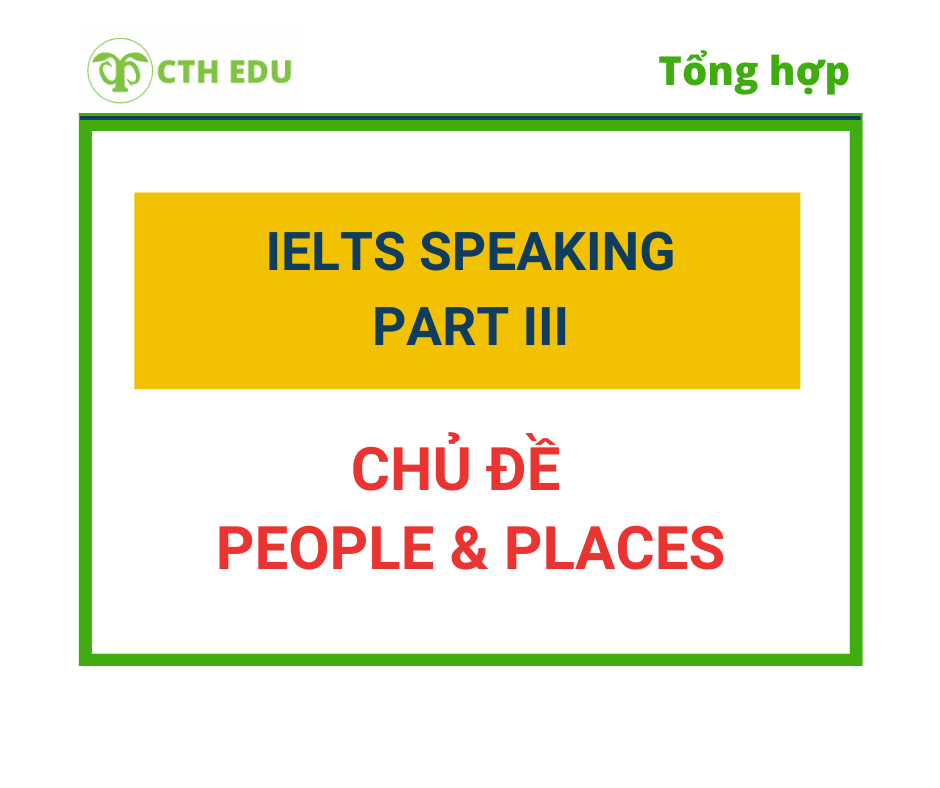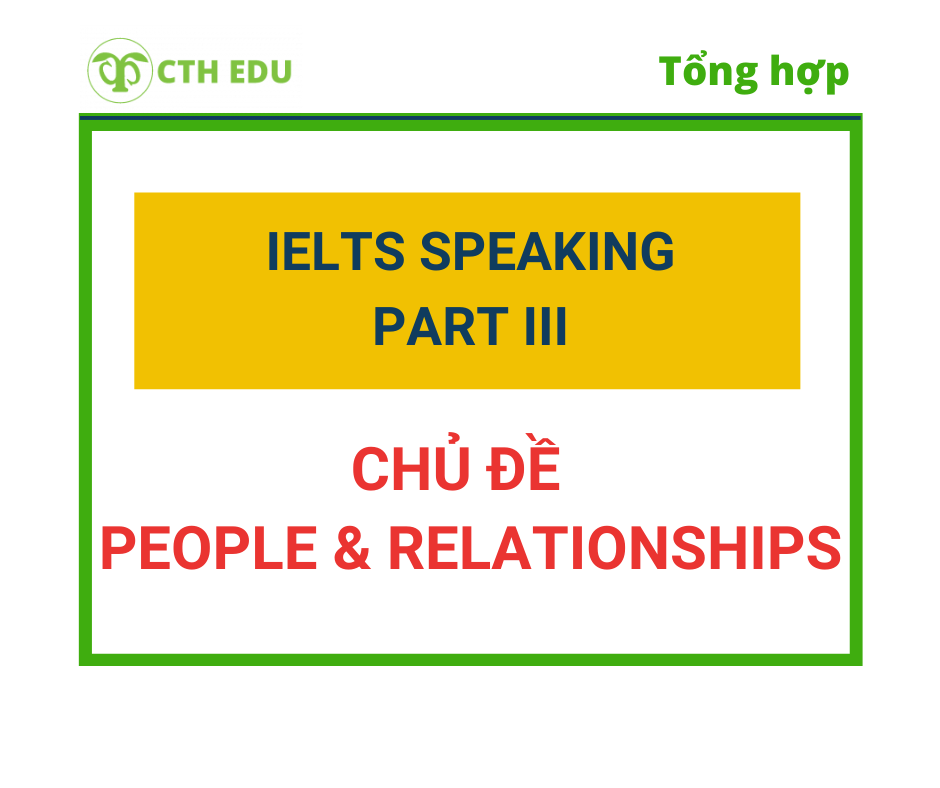CTH Edu tổng hợp câu hỏi thường gặp và gợi ý một số câu trả lời cho chủ đề Con người và Nơi chốn – People & Places của bài thi IELTS Speaking Part 3.
Câu hỏi thường gặp
1. Home
- Is it only children who experience homesickness?
- Do you think irs better for children to grow up in the city or the country?
- Why do some people retire to the countryside?
2. Patriotism
- Are people from your country patriotic?
- Why do people often feel proud of where they come from?
- Does intense patriotism have any disadvantages?
Gợi ý câu trả lời
Is it only children who experience homesickness?
Children probably feel homesickness more acutely because they may never have been away from home before. and because they are still closely attached to their parents. They cannot appreciate the cultural insights of a new place. or the time off work. the wayan adult can. And they are generally less flexible when it comes to coping with unfamiliar food and so on.
However, many adults also experience culture shock when they visit a new place. which I suppose can be considered a kind of ‘adult homesickness’. We find a place strange and even slightly disturbing. and this is because it is different to what we are used to. So, in a sense, we miss our familiar surroundings and are indeed homesick.
Do you think irs better for children to grow up in the city or the country?
I think the perfect solution is to live in the countryside close to a major cultural centre. by which I mean a big city. This means that the child can enjoy all the pleasures of country life – the farm animals. the fresh air. the relative safety – whilst at the same time not being too far from all the fun that can be had in the city – musicals. kids’ museums. zoos. Kids need to be exposed to a wide range of situations and settings. and experiencing just the city or just the countryside is limiting.
Why do some people retire to the countryside?
I suppose they crave the peace and quiet after a lifetime of hard work in the hustle and bustle of the city. In fact. in the modern imagination. I think the city is associated with work and the country with relaxation. Of course. people like farmers do work in the countryside. so irs not an altogether accurate picture. but nevertheless it is how the two opposing settings are often regarded.
Are people from your country patriotic?
On the whole, I would say yes they are. I think most people in the world are patriotic. You can see this at the Olympics where thousands of people go to support their countries’ sportspeople and millions if not billions more watch from the comfort of their own homes, cheering their countrymen on and willing them to win. It’s a very powerful force, patriotism, and has been responsible for much good and bad. But I think the Olympics shows us the best and most inclusive side of patriotism.
Why do people often feel proud of where they come from?
People feel the need to belong, to a club, to a family, to a group of friends, to a region, and to a country. Where you come from is tied up with so many other things that it says an awful lot about you, and so is of the utmost importance in defining who you are. For example, it affects what you eat, what language you speak, and how you behave towards others. Being proud of where you are from is therefore an extension of being proud of who you are.
Does intense patriotism have any disadvantages?
Oh, undoubtedly. The flipside of patriotism is xenophobia, people disliking others who are from another country and associating all kinds of negative characteristics with them. People are capable of believing that everyone from ‘that country over there’ is mean, rude, dirty et cetera. It’s quite frighten ing, really, because it could be argued that xenophobia has made it easier for governments to justify going to war with other nations over the centuries.





